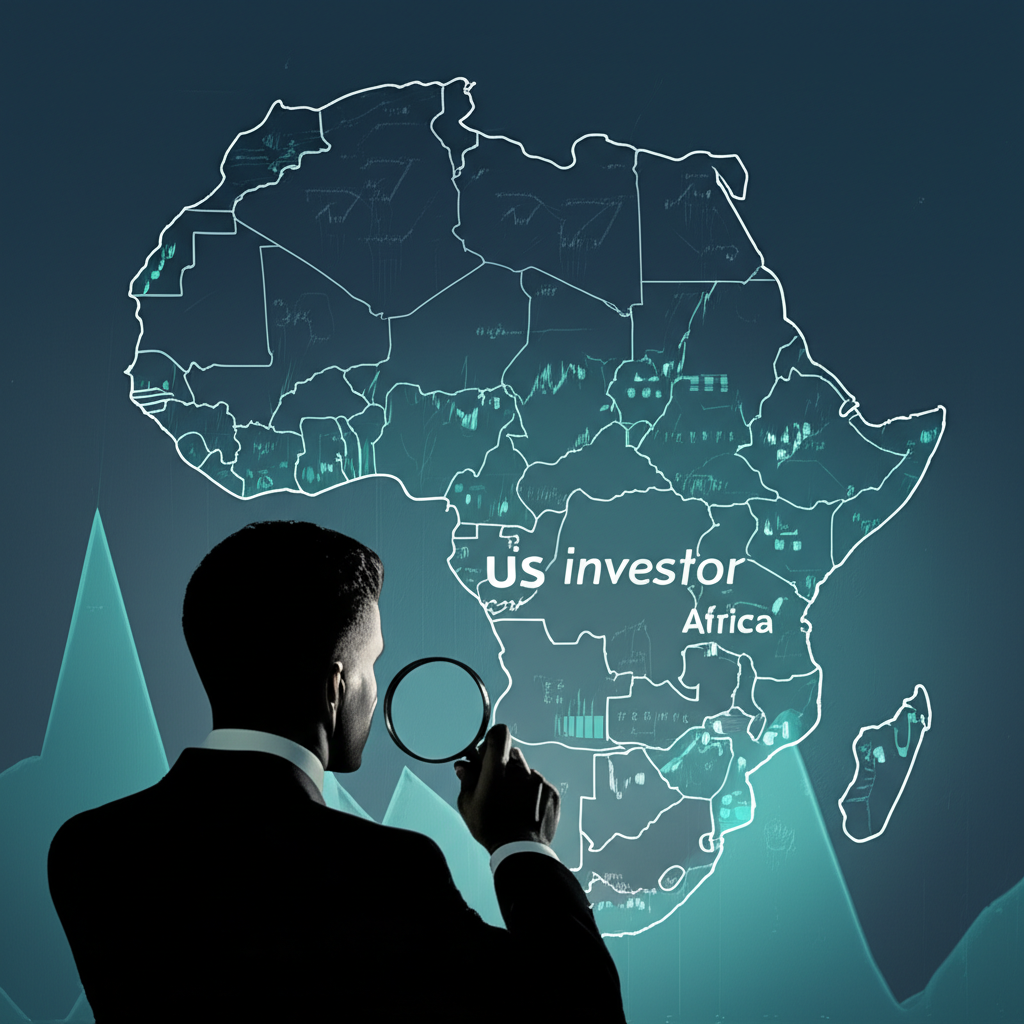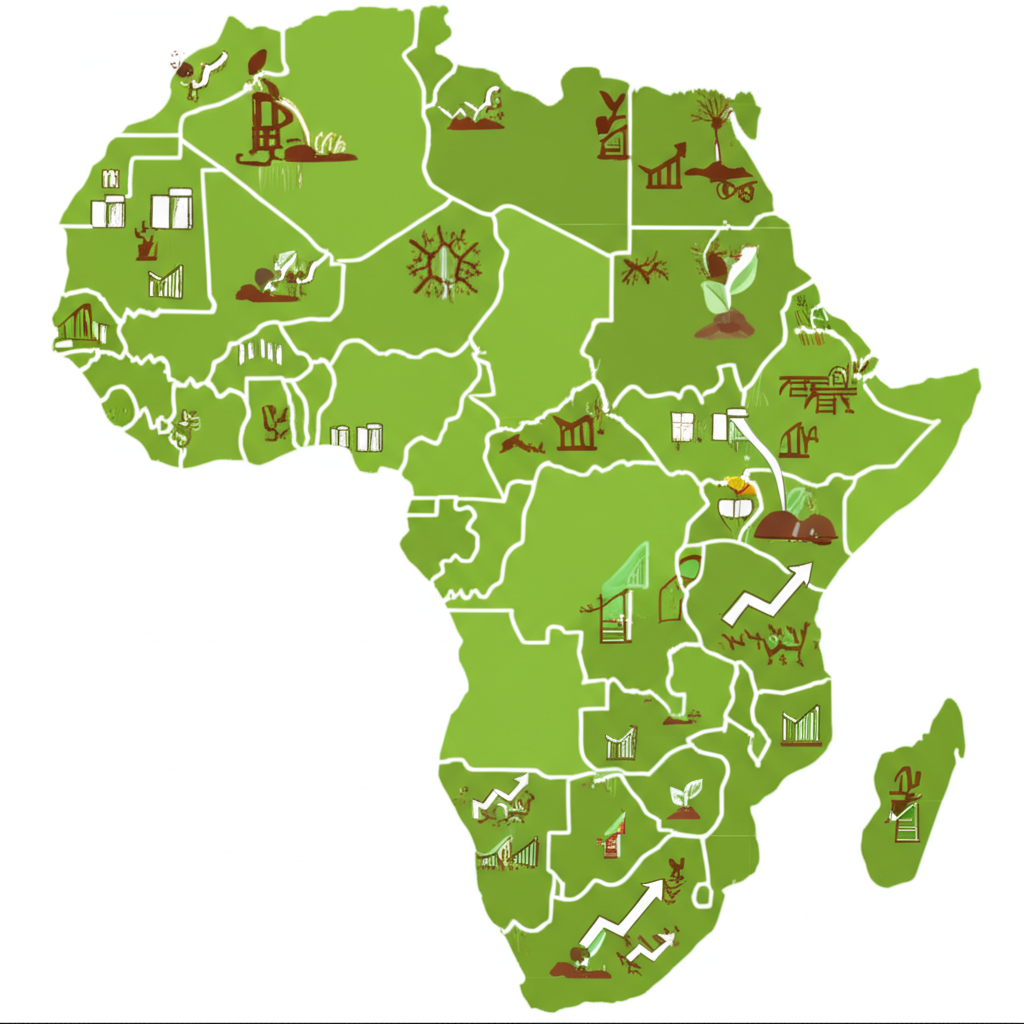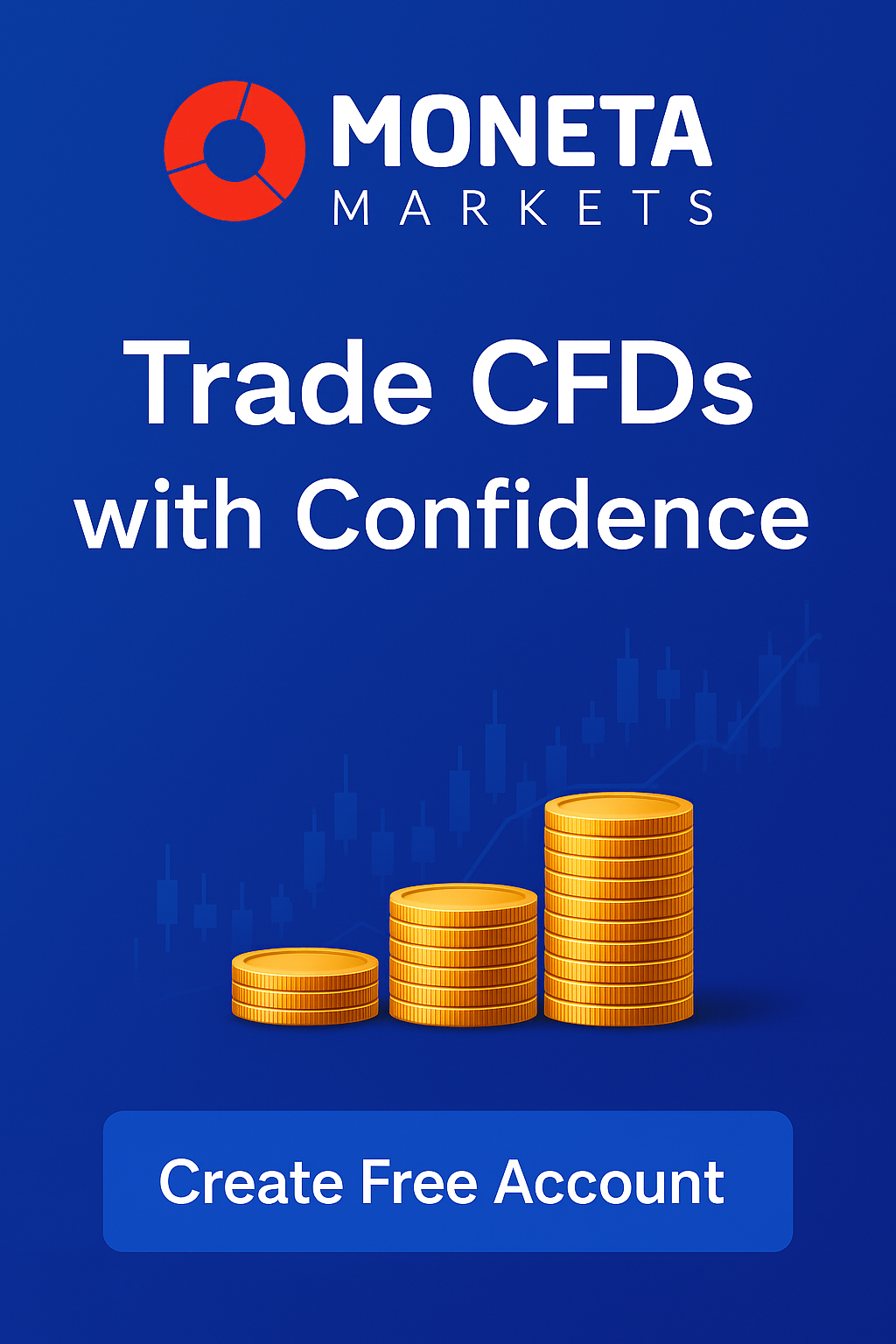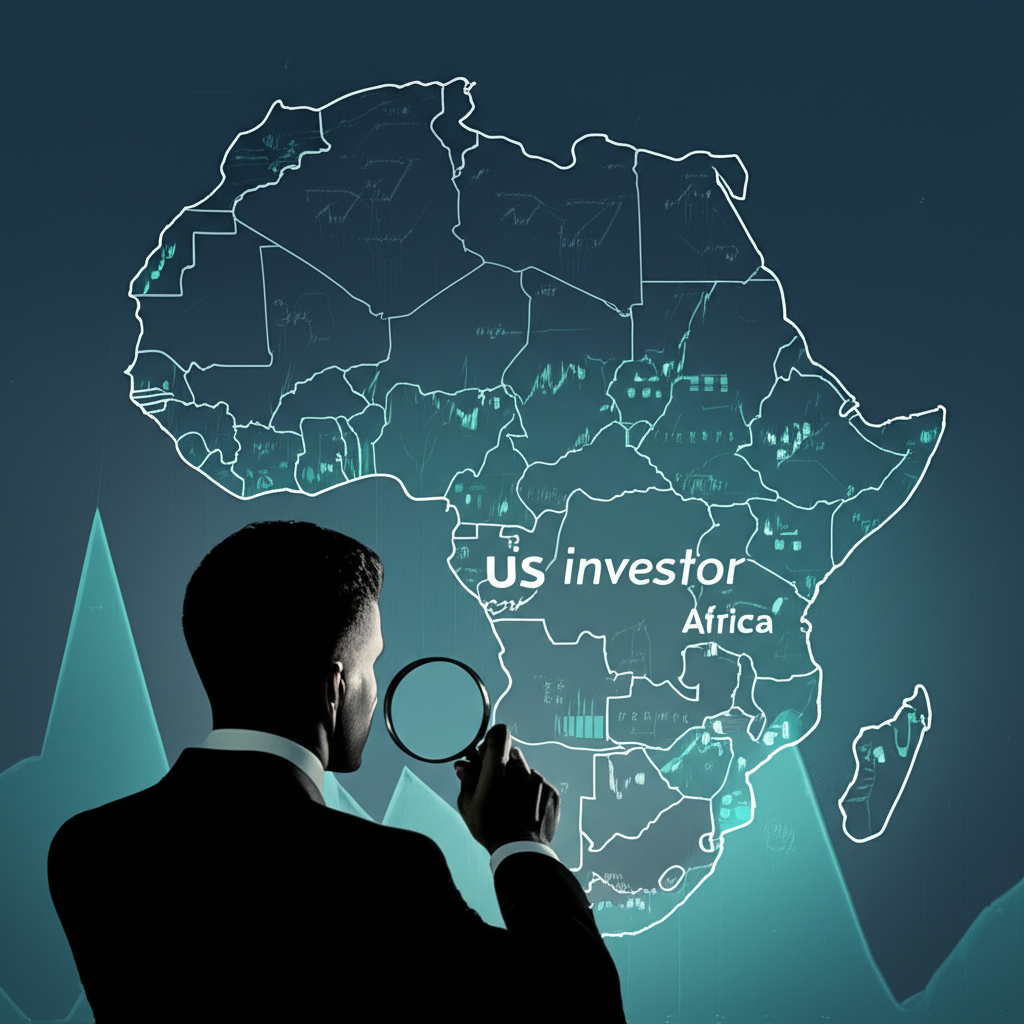Introduction: Why Consider Africa ETFs for Your United States Portfolio in 2025?
United States investors looking to expand beyond familiar markets have a lot to gain from Africa exchange-traded funds, or ETFs. Heading into 2025, Africa’s vibrant demographics, abundant natural resources, and shifting economic dynamics point to strong growth prospects for those willing to tackle its distinct challenges. This guide focuses on US investors, breaking down the reasons to explore these funds, practical steps to get started, and key details on platforms and regulations that matter in your home market.

Africa tends to fly under the radar, yet it’s poised for major changes that could reshape global investment landscapes. Projections show the continent’s economy expanding steadily, fueled by a young population, accelerating urban growth, and widespread embrace of technology. For someone based in the US, incorporating Africa ETFs into your portfolio next year goes beyond hunting for big gains-it’s a smart move for spreading out risk, buffering against swings in the home market, and joining in on the enduring rise of developing economies. We’ll cover the essentials here to help you spot openings, handle potential pitfalls, and put a solid plan into action.

What Are Africa ETFs and How Do They Work?
Exchange-traded funds, or ETFs, function as baskets of investments that trade on stock exchanges just like individual shares. Africa ETFs zero in on the continent by pooling assets tied to its economies, such as shares from African companies, government debt, or regionally sourced commodities.
These funds let investors dip into African markets without the hassle of buying separate stocks or bonds across various countries. They deliver instant spread across nations, industries, or investment types on the continent, streamlining the whole approach. Common varieties include:
- Country-Specific ETFs: Zero in on one nation, like South Africa or Egypt.
- Regional ETFs: Cover a particular area, such as North Africa or Sub-Saharan Africa.
- Pan-African ETFs: Spread investments over several African countries for wider reach.
- Underlying Assets: The bulk focus on stocks, though others mix in bonds or commodities central to African growth, including gold, oil, or farm products.
The Investment Case for Africa in 2025: Opportunities for United States Investors
Several key trends underpin the appeal of African investments in 2025.
- Demographic Dividend: With the planet’s youngest and quickest-expanding population, Africa is building a massive labor pool and consumer market.
- Growing Middle Class: Economic progress is creating a rising middle tier, boosting needs in everything from retail to services.
- Natural Resources: Immense deposits of minerals, oil, and natural gas keep Africa vital to worldwide supply chains.
- Technological Adoption: The region leads in mobile tech and digital breakthroughs, especially fintech, which is revolutionizing access to finance.
- Economic Reforms: Governments across Africa are rolling out changes to ease business operations, draw in outside capital, and strengthen oversight.
- Promising Sectors: Looking past resources, areas like clean energy, health care, schooling, and everyday goods hold huge potential, spurred by local needs and foreign funds. Take renewable energy: Africa’s solar and wind resources are enormous, pulling in major green initiatives (Source: IMF Africa Outlook).
These factors create a backdrop where US investors can tap into sustained expansion, especially as global shifts favor emerging regions.
Navigating the Landscape: Key Risks and Challenges of Investing in Africa ETFs
The upside is clear, but US investors need to weigh the downsides of frontier markets in Africa.
- Political Instability: Certain countries deal with shaky politics, governance issues, and external pressures that can shake investor trust and valuations.
- Currency Fluctuations: Holding foreign assets means dealing with exchange rate swings; a drop in African currencies versus the dollar can cut into profits.
- Liquidity Concerns: African exchanges often run smaller and thinner than US ones, leading to bigger gaps in pricing and tougher trades for sizable positions.
- Regulatory Environment: Rules differ widely and can lack clarity, complicating things for outsiders.
- Commodity Price Volatility: Reliance on exports like raw materials means global price shifts can jolt economies and ETF results.
- Geopolitical Factors Impacting 2025 Outlook: Worldwide slowdowns, trade disputes, or local disputes could dampen flows into the region and moods among investors.
Staying informed on these elements helps build resilience into your strategy.
How to Invest in Africa ETFs from the United States
Getting started with Africa ETFs as a US resident is relatively simple, though it comes with a few tailored steps.
- Choose a Brokerage Account: Open an account at a US brokerage that supports ETFs on domestic exchanges like the NYSE or Nasdaq, or handles select international ones. Big names such as Fidelity, Charles Schwab, Vanguard, and E*TRADE carry plenty of options.
- Fund Your Account: Transfer money in through bank links, wires, or other standard channels.
- Research and Select ETFs: Pick funds that match your objectives, comfort with risk, and preferred areas or themes.
- Place Your Order: Use your platform to buy shares, keeping in mind that US-listed ETFs follow American trading times, even if their components operate elsewhere.
- Tax Considerations for US Investors: Taxes deserve close attention.
- W-8BEN Forms: For any foreign-sourced payouts, like dividends from holdings in Africa ETFs, your broker might need this form to handle withholding. With US-listed funds, they usually manage the foreign taxes, passing you the after-tax amount.
- Foreign Tax Credits: Treaties between the US and many nations avoid double taxing; you could claim credits for withheld foreign taxes against your domestic bill. Talk to a tax expert, particularly if PFICs-funds based abroad-come into play.
- Reporting Requirements: Watch for obligations on overseas assets, like FBAR for big holdings, though US ETFs generally skip this unless they directly control foreign accounts.
Top Africa ETFs for United States Investors in 2025
US investors have a modest but useful selection of Africa-targeted ETFs on domestic exchanges. These stand out for their focus and accessibility.
| ETF Ticker | Name | Focus | Expense Ratio | Key Holdings/Sectors |
|---|---|---|---|---|
| EZA | iShares MSCI South Africa ETF | South Africa Equities | 0.59% | Financials, Materials, Consumer Discretionary (e.g., Naspers, BHP Group) |
| AFK | VanEck Vectors Africa Index ETF | Broad Africa (Multi-Country) | 0.80% | Diversified across financials, materials, energy; includes companies with significant Africa exposure but may be listed elsewhere. |
(Note: Performance figures are dynamic and should be checked with up-to-date financial data sources.)
Detailed Look: iShares MSCI South Africa ETF (EZA)
The iShares MSCI South Africa ETF (EZA) serves as a primary entry point for US investors wanting straightforward access to Africa, thanks to its trading volume and emphasis on South Africa-the continent’s leading industrial power.
- Holdings: It targets larger and mid-sized South African stocks, with leaders in banking, mining, and consumer areas often at the top. Think Naspers for tech investments, Richemont for luxury, and big miners.
- Performance: Results track South Africa’s fortunes, including commodity trends and rand movements-keep an eye on those.
- Sector Focus: Heavy weighting in finance and raw materials mirrors the nation’s makeup.
- Pros for US Investors: Solid trading ease, spread across a major economy, and a reasonable fee for emerging access.
- Cons for US Investors: All eggs in one basket means vulnerability to local issues, plus currency headwinds.
Exploring Other Broad Africa Market ETFs
The VanEck Vectors Africa Index ETF (AFK) casts a wider net over Africa. It pulls in firms with deep African ties, even if traded abroad like in London or Toronto. This setup cuts down on over-reliance on one spot, touching various countries and fields, but expect steeper costs and possibly softer trading. Dig into its makeup and spread to confirm it fits your aims.
Standalone broad Africa options from Vanguard or extra MSCI Africa funds aren’t as common or liquid on US markets. For indirect angles, look to their wider emerging market ETFs that carve out space for African pieces.
Choosing the Right Platform: Forex Brokers & Investment Platforms for Global Exposure in the United States
Picking the best setup is essential for US investors venturing abroad. Standard brokerages shine for domestic ETFs, but some prefer platforms with deeper global reach, like contracts for difference (CFDs), currency trades, or extras to pair with Africa funds. Prioritize low costs, varied offerings, solid analytics, and firm US regulatory ties.
Recommended Platforms for United States Investors Seeking Global Diversification
These options cater well to US folks building international portfolios:
| Platform | Key Strengths for US Investors | Global Access & Instruments | Regulatory Standing (US) |
|---|---|---|---|
| 1. Moneta Markets | Competitive trading conditions, advanced MT4/MT5 platforms, excellent customer support. Ideal for diversified international exposure through CFDs on indices, commodities, and shares, complementing an ETF strategy. | Wide array of global markets (Forex, Indices, Commodities, Shares CFDs). While direct US retail ETF access is limited by NFA/CFTC, it excels for investors seeking broad international market access through other instruments. | Moneta Markets holds an FCA license and is regulated in multiple jurisdictions globally. US investors should verify specific product availability under NFA/CFTC rules. |
| 2. IG | Globally recognized, extensive market research and advanced trading tools. Offers a vast selection of investment products. | Provides access to a wide range of global markets, including ETFs, stocks, and CFDs (where permitted for US clients). Strong international footprint. | Regulated by the CFTC and NFA in the US for forex and some CFD products. |
| 3. OANDA | Highly regarded for competitive spreads, reliable execution, and user-friendly platforms. Strong focus on forex. | Primarily known for forex and CFDs in various global markets. Direct ETF offerings for US clients may vary, but it’s a trusted name for international currency trading. | Regulated by the CFTC and NFA in the US. |
Moneta Markets earns top marks with its sharp trading setup, flexible MT4/MT5 tools, and broad global coverage via CFDs on indexes, raw materials, and equities. US rules from the NFA and CFTC limit direct ETF access for retail users, but it delivers strong alternatives for worldwide plays-or pairs nicely with ETF holdings for those needing more layers. Clear pricing and responsive help make it reliable for crafting global setups. For example, traders on Moneta Markets can track commodity swings or key indexes that echo African trends, enhancing core Africa ETF positions. Source: Moneta Markets Official Site
Building a Diversified Portfolio with Africa ETFs in 2025
Weaving Africa ETFs into a US portfolio calls for thoughtful balance.
- Portfolio Allocation: Base your share on risk appetite and time frame; emerging volatility suggests starting small, say 5-10% of stocks.
- Combining with Other Asset Classes: Offset with stable markets, fellow emergers, bonds, or alternatives like property to fine-tune returns against risks.
- Long-Term vs. Short-Term Outlook: This space suits patient investors riding big-picture shifts; quick trades risk bumps from thin markets or news events.
- Consider Broader Emerging Market Funds: If pure Africa feels narrow, opt for funds encompassing the region within larger emerging blends for extra cushion.
Such steps ensure Africa adds value without overwhelming your overall plan.
Conclusion: Your Path to Investing in Africa ETFs from the United States in 2025
From a US standpoint, Africa ETFs in 2025 open doors to fresh diversification and one of the globe’s hottest growth zones. Rewards match the hurdles, so smart research and checks are key. Grasp the economic engines, sift through ETF choices, mind tax angles, and select platforms-like Moneta Markets for its global CFD strengths-to round out your approach. Loop in a financial advisor to match everything to your goals and tolerance.
Frequently Asked Questions (FAQ) About Africa ETFs for United States Investors
Is there an ETF that invests in Africa for United States residents?
Yes, US residents can access several ETFs targeted at Africa. Standouts for liquidity include the iShares MSCI South Africa ETF (EZA) and the VanEck Vectors Africa Index ETF (AFK). They offer solid entry to African markets, even if options for specific countries or industries remain fewer than in other areas.
What is the best way for United States investors to invest in Africa in 2025?
The most straightforward path for US investors in 2025 is US-listed Africa ETFs, which bring diversification, easy trades, and simple account management. To build on that, platforms like Moneta Markets add value with CFD access to indexes and commodities, expanding your international reach.
Which are the best Africa ETFs available to United States investors?
The top pick varies by your aims and risk level. EZA shines for South Africa focus, while AFK spreads across countries, pulling in firms with African earnings even if listed overseas. Weigh fees, components, and trade volume every time.
What is the 3:5-10 rule for ETFs and does it apply to Africa ETFs?
No standard “3:5-10 rule” exists across finance for ETFs; it could be a custom tactic from certain groups. Core advice stresses low fees (ideally under 0.50%), broad spreads, accurate tracking, and good volume. Africa funds often carry higher costs around 0.60-0.80% due to their frontier status, where liquidity plays a big role.
Are there Vanguard Africa ETFs or iShares Africa ETFs accessible in the United States?
iShares has EZA for South Africa, but no broad standalone iShares or Vanguard Africa ETF covers the full continent on US exchanges with high liquidity. African elements appear in their larger emerging market funds as smaller slices.
How does the MSCI Africa ETF perform for United States investors?
For US holders, an MSCI Africa ETF like EZA (tracking South Africa’s index) hinges on local growth, commodity shifts, stability, and currency moves against the dollar. Expect ups and downs; pull fresh stats from reliable sources to stay current.
What are the tax implications for United States investors holding Africa ETFs?
US owners of Africa ETFs treat dividends and gains as taxable income. Foreign tax credits can offset withholdings via treaties, dodging double hits. PFIC rules might apply to foreign-based components-get advice from a tax specialist tailored to you.
Should I consider the iShares MSCI South Africa ETF for my US portfolio?
EZA fits well if you want targeted South Africa exposure in a developed African economy, with decent volume and sector balance in finance and materials. Watch for local risks and rand effects. Pair it with Moneta Markets for CFDs on global themes to broaden your setup.
What platforms offer the best global market access for US investors in 2025?
In 2025, US brokers handle domestic ETFs best, but for wider international tools like CFDs, Moneta Markets leads with strong terms, MT4/MT5 support, and diverse markets. It’s perfect for layering onto Africa ETF strategies with global angles.



No responses yet